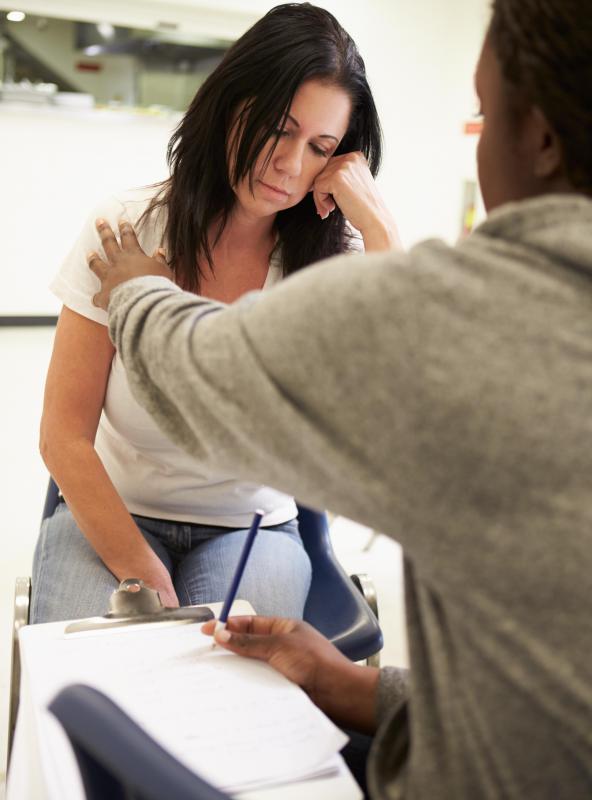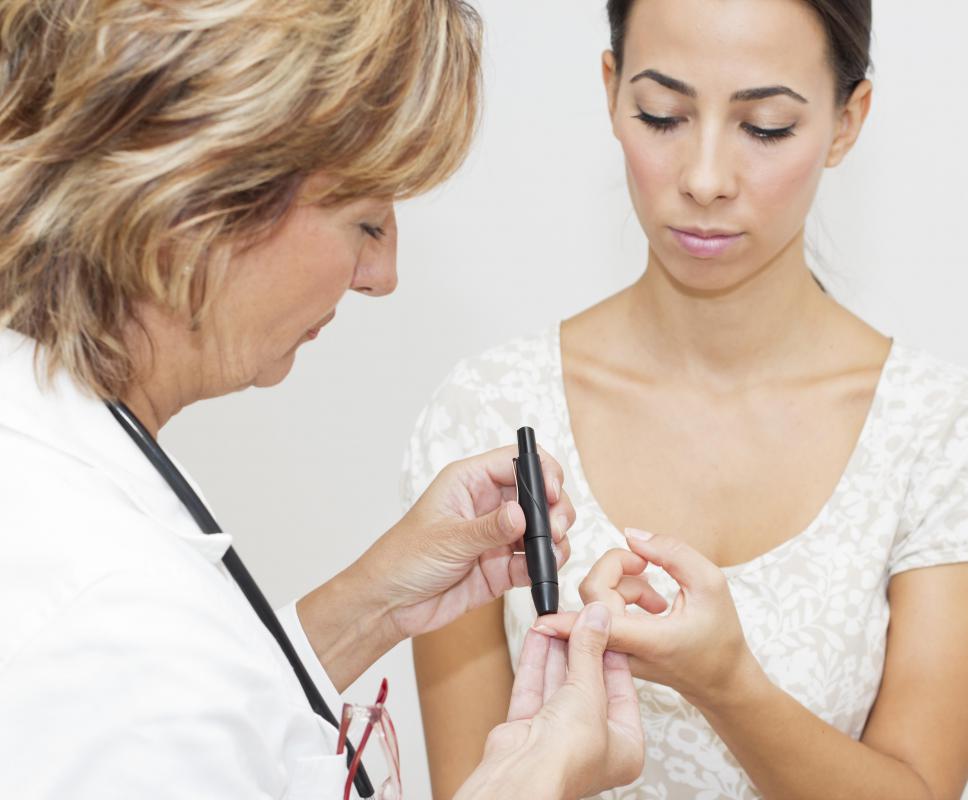At TheHealthBoard, we're committed to delivering accurate, trustworthy information. Our expert-authored content is rigorously fact-checked and sourced from credible authorities. Discover how we uphold the highest standards in providing you with reliable knowledge.
What are the Signs of a Miscarriage Infection?
Miscarriage infection may occur after a woman knows she has suffered a miscarriage, or it is sometimes the result of the death of the fetus in utero, and the woman is unaware that the child has died. The second is less common when women receive regular care, because fetal death is often easily noted in absence of a heartbeat and can be confirmed with ultrasound. In either of these instances, signs of a miscarriage infection may include extra bleeding, cramping, fever, and unusual vaginal discharge. If these signs are ignored, the infection may turn into a blood infection or sepsis, and it can affect numerous organs and create a strong health risk.
When a woman is aware that she has had a miscarriage or an abortion has been performed, doctors typically give guidelines to follow for recovery. The first of these is abstaining from sexual activity for about two to six weeks, and to avoid placing anything in the vagina like tampons during this time. Bleeding is expected for a couple of weeks after a miscarriage, and in some women, this can last for up to four to six weeks. It usually gets much lighter as time passes, and women shouldn’t notice large blood clots or an increase in bleeding, especially after the first few days. Severe bleeding, particularly several days after a miscarriage, could be sign of a miscarriage infection or of hemorrhaging, and quick attention to this symptom is needed.

Cramping tends to occur for a few weeks after a miscarriage, but if this suddenly becomes severe, it is another potential sign of a miscarriage infection and needs attention. Women should be particularly concerned if heavy bleeding and/or cramping is present with a fever that exceeds 100.4 degrees F (38 degrees C). Any unusual vaginal smell, with or without the presence of heavy discharge could also be indicative of bacterial infections. If the infection worsens, other symptoms such as body aches, extreme fatigue, swelling of lymph nodes, or loss of consciousness could occur.

Sometimes, some or all of these signs of miscarriage infection occur in a woman who is unaware of a pregnancy or unaware that the fetus has died in utero. This makes any symptoms of cramping, bleeding, discharge or others important to report to a doctor when they occur. They can certainly indicate other conditions that might also require treatment and immediate medical attention.

Most women have a follow-up visit with their doctor after having suffered a miscarriage. This is an important visit to attend and usually occurs about six weeks after the miscarriage. After this point, women are unlikely to have a miscarriage infection unless they’ve retained some portion of the fetal tissue. Should this be suspected, doctors may order procedures to remove remains of the pregnancy to prevent sepsis from occurring and to preserve the health of the uterus for future pregnancies. This step may be taken earlier if doctors diagnose a missed miscarriage.
AS FEATURED ON:
AS FEATURED ON:



















Discussion Comments
Doctors should also make sure the woman's partner or another close family member know the signs of miscarriage infection. This is because some women may be in such deep grief after a miscarriage they may not be taking care of themselves properly, so they could miss these symptoms.
In extreme cases, the woman may not want to live after her baby dies, and may knowingly neglect herself, hoping she dies, also. This kind of circumstance obviously warrants taking the woman to her doctor immediately.
This is an extremely difficult situation and all women who have gone through it have my sympathy.
Post your comments